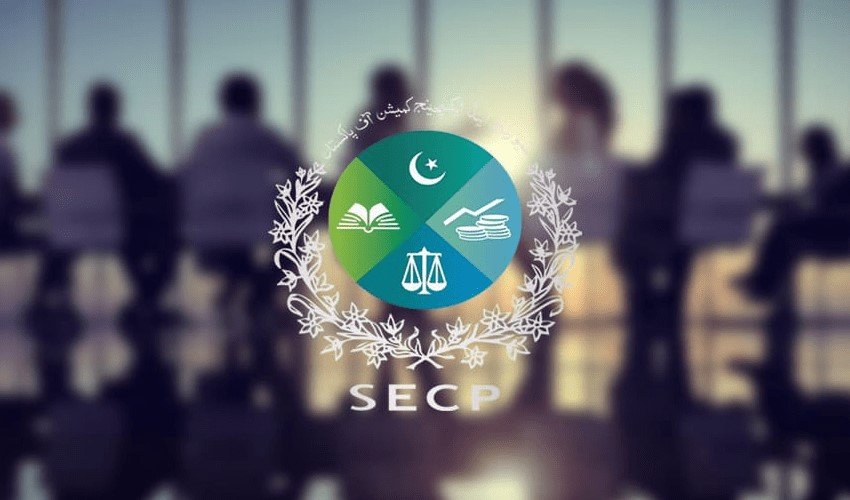The Securities and Exchange Commission of Pakistan (SECP) will introduce the concept of Tier-I and Tier-II capital for all non-bank Islamic financial institutions and an alternative dispute resolution mechanism for Islamic finance contracts, providing a Shariah-compliant approach to resolving disputes.
The government also plans to promulgate a dedicated primary law for Islamic financial services to strengthen the legal and regulatory framework for Islamic finance.
In this regard, the SECP has drafted a Strategic Action Plan 2024-26 for the development of Islamic finance in the non-bank financial sector.
According to the plan, this strategic action plan presents a unified initial agenda and approach to elevate the industry to the next level of progress and advancement. It places significant emphasis on encouraging Islamic financial institutions to utilize innovative products incorporating Shariah-based features to serve underdeveloped sectors, which are essential for the country’s economic growth.
The efficient execution of the plan’s objectives in each area will depend heavily on the involvement of all stakeholders.
The strategy for advancing Islamic finance in Pakistan prioritizes four key areas, which include enabling a regulatory framework, achieving greater standardization, sustainable market development, and promotion and awareness.
In the case of Islamic capital markets, as of June 30, 2023, there are 253 (48 percent) Shariah-compliant securities out of a total of 524 listed securities at the Pakistan Stock Exchange (PSX), with a market capitalization of Rs. 4,149 billion (65 percent) out of a total market capitalization of Rs. 6,369 billion. Assets valuing Rs. 721.67 billion (43 percent) under management of mutual fund schemes, and Rs. 232.62 billion (65 percent) under management of pension fund schemes are Shariah-compliant as of June 30, 2023.
The Takaful sector in Pakistan is marking its ground in line with the increasing demand for Shariah-compliant solutions for risk management. Presently, the sector consists of 33 Takaful operators, including 5 dedicated Takaful operators and 28 window Takaful operators.
In terms of insurance premium, the Takaful market share is 11 percent of the total size of the insurance market as of December 31, 2022.
Under the roadmap, the SECP will include Islamic finance in its Innovation Office initiative in addition to promoting it through the regulatory sandbox initiative, fostering a culture of innovation and growth. Additionally, a series of capacity-building and awareness sessions will be arranged to enhance market capacity and educate stakeholders about Islamic finance in regulated areas, enhancing understanding and adoption.
A foundational framework will also be developed to ensure a structured mechanism for ongoing monitoring and compliance of Islamic financial institutions, ensuring their operations align with Shariah principles. Accordingly, the SECP aims to improve the quality of Islamic financial institutions’ operations through new initiatives.
In order to strengthen the legal and regulatory framework for Islamic finance, a dedicated primary law for Islamic financial services will be promulgated, providing a comprehensive and tailored regulatory environment. Additionally, the Modaraba Ordinance, 1980, will be updated to align with contemporary needs and best practices.
Apart from introducing similar Shariah governance requirements in all regulated sectors, consistency in adherence to Shariah principles will be achieved. Furthermore, the concept of Tier-I and Tier-II capital will be introduced for all non-bank Islamic financial institutions, enhancing their financial resilience. Finally, an alternative dispute resolution mechanism will be introduced for Islamic finance contracts, providing a more efficient and Sharia-compliant approach to resolving disputes.
The plan added that the Islamic Financial Services Industry (IFSI) has grown to a sizable portion in Pakistan. Even though the asset size of Islamic finance in the banking sector overshadows the non-banking sector, in terms of the number of institutions and diverse nature of activities, the scope of Islamic finance in the SECP-regulated sectors is much broader than that of Islamic banking.
The latest key figures signify Islamic finance’s substantial presence in the non-bank financial sector. The Shariah-compliant securities comprise 253 (48%) with a market cap of Rs. 4,149 billion (67%) as of June 30, 2023 [total 524 listed securities with a market cap of Rs. 6,369 billion].
Domestic Ijarah Sukuk of Rs. 3.15 trillion was issued by GoP till June 30, 2023.
Shariah-compliant CIS represents 43% of total mutual funds AUMs and 65% of pension fund AUMs as of June 30, 2023, and the Takaful market share is 11% of the total size of the insurance market premium as of December 31, 2022, it added.
The envisaged target of a 15 percent increase in the existing share of Islamic finance in the non-bank financial sector and capital market by the year 2025 requires capitalizing on the potential of the Islamic financial industry through an enabling regulatory environment while ensuring its stability through sound legal and regulatory footings.
Acknowledging the dire need for developing Shariah-compliant products for the capital market, microfinance, microinsurance, P2P financing, and liquidity management, the roadmap enumerates the recommendations to focus on the development of Islamic finance in all regulated sectors by encouraging the Islamic finance industry and market players.
This will enable the Islamic finance industry to achieve the target of 10-15 percent growth in the size of the Islamic liquidity market, Shariah-compliant digital financing, and Islamic microfinance by 2025.












